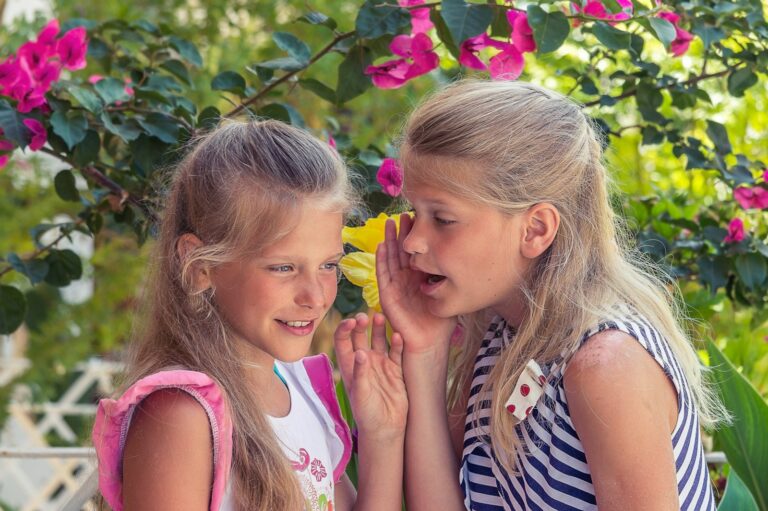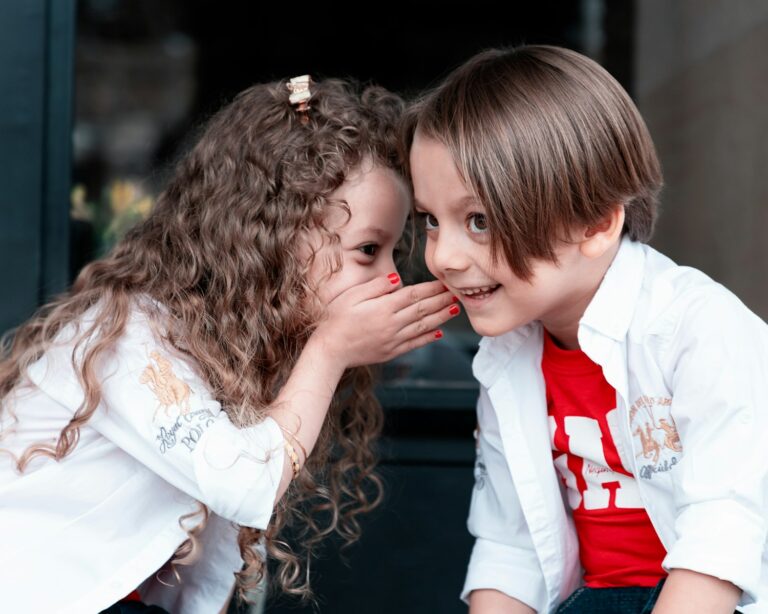How to Say “What is Your Birthday” in Spanish
Learning to ask personal questions in Spanish, such as “What is your birthday?“, is not just about expanding your linguistic skills; it’s about forging deeper connections. Whether you’re a traveler, a student, or simply a curious language enthusiast, knowing how to inquire about someone’s birthday with the appropriate level of politeness opens the door to more meaningful interactions.
Understanding the Basics
The standard phrase for asking someone’s birthday in Spanish is, “¿Cuál es tu fecha de nacimiento?” This can be directly translated to “What is your birth date?” in English. A crucial detail to note here is the use of “cuál” instead of “qué” in this context.
QUICK TIP: "Cuál" is often used in Spanish when asking for specifics among several possibilities, which is why it's preferred over "qué" in questions about personal information like birthdays.Key Phrases and Words
Before diving deeper, let’s familiarize ourselves with the essential phrases and words related to discussing birthdays in Spanish.
Below is a table that compares various Spanish phrases/words with their English translations and definitions, serving as a foundational guide for birthday-related conversations.
Spanish Phrase/Word | English Translation | Definition/Use |
|---|---|---|
Fecha de nacimiento | Birth date | Used to inquire about someone’s birthday |
Cumpleaños | Birthday | Refers to the anniversary of someone’s birth |
Celebrar | To celebrate | Used to express the act of celebrating a birthday |
Fiesta | Party | A gathering to celebrate someone’s birthday |
Regalo | Gift | Something given to someone on their birthday |
QUICK TIP: Pay close attention to the gender of nouns and adjectives, as they must agree in gender and number with the nouns they describe.In addition to these key phrases and words, it’s important to be aware of other relevant vocabulary that can enhance your conversations about birthdays. Here are a few more words and phrases to consider:
By expanding your vocabulary, you can express yourself more precisely and engage in more nuanced conversations about birthdays and celebrations.
Pronunciation Guide
The correct pronunciation is key to being understood and to respecting the nuances of the Spanish language. Pronunciation can significantly impact the clarity of your communication. Here is a guide for pronouncing key birthday-related phrases and words.
Spanish Phrase/Word | Pronunciation (IPA) |
|---|---|
Fecha de nacimiento | ˈfetʃa ðe naθiˈmjento |
Cumpleaños | kumpleˈaɲos |
Celebrar | celeˈβɾaɾ |
Fiesta | ˈfjesta |
Regalo | reˈɣalo |
QUICK TIP: Practice pronunciation with a native speaker or use language learning apps to enhance your abilities. Correct pronunciation will not only help you be understood, but it will also make your conversations more fluid and natural.Practical Usage: Example Sentences
Understanding how to use birthday-related phrases in real-life conversations is crucial. The following table provides example Spanish sentences with English translations for practical usage in various contexts.
Spanish Sentence | English Translation |
|---|---|
¿Cuándo es tu cumpleaños? | When is your birthday? |
Quiero celebrar tu cumpleaños. | I want to celebrate your birthday. |
¿Qué regalo quieres para tu cumpleaños? | What gift do you want for your birthday? |
Vamos a tener una gran fiesta para tu cumpleaños. | We’re going to have a big party for your birthday. |
¡Feliz cumpleaños! | Happy birthday! |
¿Has recibido muchos regalos? | Have you received many gifts? |
QUICK TIP: Context matters—alter phrases slightly depending on the formality of the situation. These example sentences can be used as a starting point, but feel free to adapt them based on the specific conversation you're having.Common Mistakes and Corrections
Learning from mistakes is a vital part of language acquisition. Here are some common mistakes learners make when discussing birthdays in Spanish, paired with corrective guidance.
Common Mistake | Corrective Guidance |
|---|---|
Using “qué” instead of “cuál” for asking dates. | Use “cuál” when asking for specific dates. |
Incorrect gender agreement with nouns/adjectives. | Ensure nouns and adjectives agree in gender and number. |
Mispronouncing “cumpleaños” as “cumpleaño“. | Remember the final “s” in “cumpleaños” for plural. |
Forgetting the accent mark in “cuándo“. | Remember to include the accent mark in “cuándo” when asking “When?”. |
Expanding Your Vocabulary
To further enrich your conversations about birthdays and celebrations, consider learning these additional phrases:
These phrases add depth and variety to birthday discussions. By incorporating them into your conversations, you can express yourself more fully and engage in more nuanced discussions.
Glossary of Terms
A glossary can serve as a quick reference for birthday-related Spanish vocabulary. Below is a glossary with translations and definitions relevant to birthdays.
Spanish Term | English Translation | Definition/Use |
|---|---|---|
Fecha de nacimiento | Birth date | The date someone was born |
Cumpleaños | Birthday | The anniversary of someone’s birth |
Celebración | Celebration | An act of marking someone’s birthday |
Regalo | Gift | A present given to someone |
Fiesta de cumpleaños | Birthday party | A party to celebrate someone’s birthday |
Invitado/a | Guest | A person who is invited to an event |
Sorprender | To surprise | The act of doing something unexpected |
Tarjeta de cumpleaños | Birthday card | A card given to someone on their birthday |
QUICK TIP: Refer back to this glossary as you practice to reinforce your learning. Having a quick reference for birthday-related vocabulary can make your conversations more fluid and help you express yourself accurately.Test Your Knowledge: Quiz Section
Test your understanding of discussing birthdays in Spanish with this fun quiz. Evaluate your knowledge and identify areas for further practice through these quiz questions.
Results
#1. How do you ask “What is your birth date?” in Spanish?
#2. Which word is used to mean “birthday” in Spanish?
#3. What is the Spanish phrase for “Happy birthday!”?
#4. How do you say “I want to surprise you on your birthday” in Spanish?
#5. What is the Spanish phrase for “birthday cake”?
Conclusion
Mastering how to discuss birthdays in Spanish is more than learning phrases; it’s about connecting with others in their native language. From understanding the basics to expanding your vocabulary, each step brings you closer to more authentic and meaningful conversations.

By using the key phrases, practicing correct pronunciation, avoiding common mistakes, and exploring additional vocabulary, you can confidently engage in discussions about birthdays and celebrations. Remember to be culturally sensitive and adapt your language based on the context. Keep practicing, and don’t forget the importance of politeness and cultural sensitivity in your interactions.
FAQs
Why is it important to learn how to ask personal questions in Spanish?
Learning how to ask personal questions in Spanish is important because it allows you to connect with others on a deeper level. By showing an interest in someone’s personal life, such as their birthday, you can build stronger relationships and have more meaningful conversations.
What is the difference between “cuál” and “qué” when asking about someone’s birthday?
“Cuál” is used when asking for specifics among several possibilities, which is why it is preferred over “qué” when asking about personal information like birthdays. “Qué” is more general and is used when asking for a general description or information.
Why is correct pronunciation important in Spanish?
Correct pronunciation is important in Spanish because it helps ensure that you are understood by native speakers and allows you to communicate more effectively. It also shows respect for the language and its nuances.
How can I practice my pronunciation in Spanish?
You can practice your pronunciation in Spanish by listening to native speakers, using language learning apps or websites that offer pronunciation exercises, and practicing speaking with a language exchange partner or tutor.
Are there different ways to ask for someone’s birthday in Spanish depending on the formality of the situation?
Yes, the phrases used to ask for someone’s birthday can be slightly altered depending on the formality of the situation. It is important to consider the context and use appropriate language and tone when asking personal questions.
What are some common mistakes learners make when discussing birthdays in Spanish?
Some common mistakes learners make when discussing birthdays in Spanish include using “qué” instead of “cuál” when asking for specific dates, incorrect gender agreement with nouns and adjectives, and mispronouncing words like “cumpleaños”.










